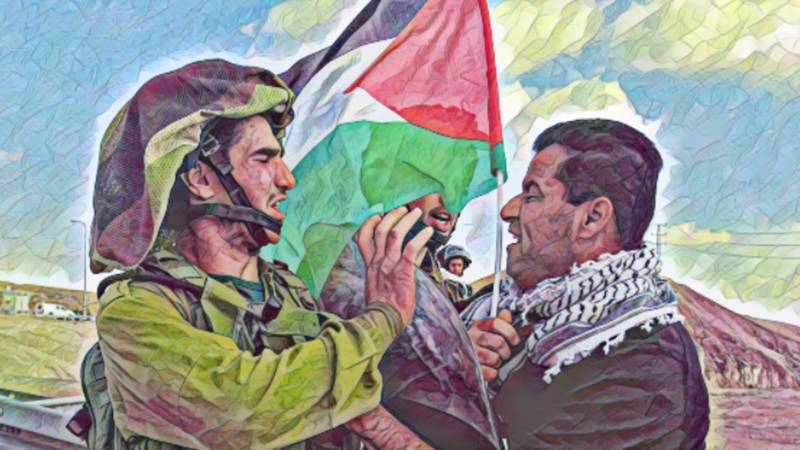
The Balfour Declaration of 2017 and then the 1947 UN approval of Palestine’s partition, giving formal recognition to the state of Israel and the state of Palestine, resulted in the formation of only the state of Israel and its membership of the United Nations. 76 years after the establishment of the Jewish State of Israel, an independent state of Palestine is still nothing but a pipe dream. During the last seven decades, Israel has continued its occupation of the West Bank, the Gaza Strip and even Jerusalem. Hundreds of thousands of Palestinians have been uprooted from their ancestral lands and live as refugees in Egypt, Jordan, Lebanon, Syria and many other countries of the world. The question of recognizing the state of Palestine is one of the oldest issues on the agenda of the UN. Israel and the Arab nations have gone to war in 1948, 1967, 1973 and Israel is still using its full might to annihilate the Palestinian resistance in Gaza and the West Bank.
Very recently, there has been a fresh initiative to accept and grant recognition to the state of Palestine. Countries like Britain, Ireland, Malta, Slovenia, Norway, Spain and Australia have announced that they will recognize the state of Palestine. According to the foreign minister of Australia, “Recognizing a Palestinian state that can only exist side by side with a secure Israel will strengthen forces for peace.” Granting statehood to Palestine is a long lost issue before the UN Security Council, where it will definitely face a veto by the USA in total contradiction of the American stated position that they believe in a two-state solution so that Israel and Palestine both can exist in peace and security.
The end of WWI resulted in the collapse of the Ottoman Empire and Palestine became a trust territory with Britain as the trustee manager of the area. Palestinian nationals called for a free democratic state of Palestine but the Palestinians lacked leadership and the only leader of the Palestinians was a religious leader called Amin Ul Husseini known as the Grand Mufti of Palestine. The Zionist movement on the other side was led by great political leaders such as Theodor Herzl, Chaim Weizmann, David Ben-Gurion, Golda Meir and many more. During the war of 1948, the Palestinian leaders took refuge in neighbouring countries and the Jewish leaders stood their ground and fought tooth and nail for the establishment of Israel. United Nations Resolution 181, passed by the General Assembly in 1947, called for the partition of Palestine into Arab and Jewish states, with the city of Jerusalem as a corpus separatum (Latin: “separate entity”) to be governed by a special international regime. The resolution—which was considered by the Jewish community in Palestine to be a legal basis for the establishment of Israel, and which was rejected by the Arab community—was succeeded almost immediately by violence. The Palestine Liberation Organization’s (PLO) founding mission statement in 1964 called for the return of the refugees (a right enshrined by UN Resolution 194 in 1949) and the liberation of their homeland from Zionist “occupation and colonialism” (including the exodus of all Jews that had immigrated to Palestine after 1917). It did not focus on the creation of a sovereign independent state as a defined goal. In the 1967 war Israel inflicted a crushing defeat on Egypt, Jordan, Syria and Lebanon and occupied the Gaza Strip, West Bank and Jerusalem.
The Palestinian National Council (PNC), which is the legislative body of the PLO, voted unanimously in 1971 to support a resolution specifying that the goal of the national liberation struggle was the establishment of “a democratic Palestinian state” in historic Palestine, where “all [Muslims, Christians and Jews] who wish will be able to live in peace there with the same rights. The first, UN Security Council Resolution 242, which was issued as a diplomatic framework to resolve the Arab-Israeli conflict in the shadow of the 1967 war, denied the political existence of the Palestinian people. The PNC’s proposal to establish a “democratic Palestinian state” also provided a more just alternative to the UN Partition Plan of 1947, which would have reduced the scope of a Palestinian state to 45 percent of the country and deprived it of most of its economic resources. Critically, the PNC’s proposal explicitly denounced the handful of ideas that had been floated since the 1967 war to establish a much smaller “statelet” in the occupied West Bank and Gaza Strip. As Edward Said put it in 1979, the PLO never resolved “the question of whether it is really a national independence or a national liberation movement.” Would the acceptance of sovereignty over a small part of historic Palestine undermine the dream of dismantling settler colonialism—the legal, economic and institutional pillars of Jewish supremacy—in all of it?
As of today the state of Palestine has been accepted as an observer state of the United Nations General Assembly in November 2012. As of April 2024, 140 of the 193 UN member states have recognized the state of Palestine but full recognition as an independent state and member of the UN has not been achieved so far. The Palestinian people are plagued by internal divisions and lack a cohesive united front. The two main political factions are Hamas and Fatah. In June 2006 Hamas won a majority in the Palestinian Legislative Council Elections, leading to a political conflict with Fatah that resulted in armed clashes leading to political control of West Bank by Fatah and the Palestinian Authority, and the Gaza Strip controlled by Hamas.
This split has prevented Palestinian unity and a joint front against Israel. It has also made it exceedingly difficult to negotiate a peace agreement with Israel, locking the Palestinian people into the ongoing situation of violence directed at them.

